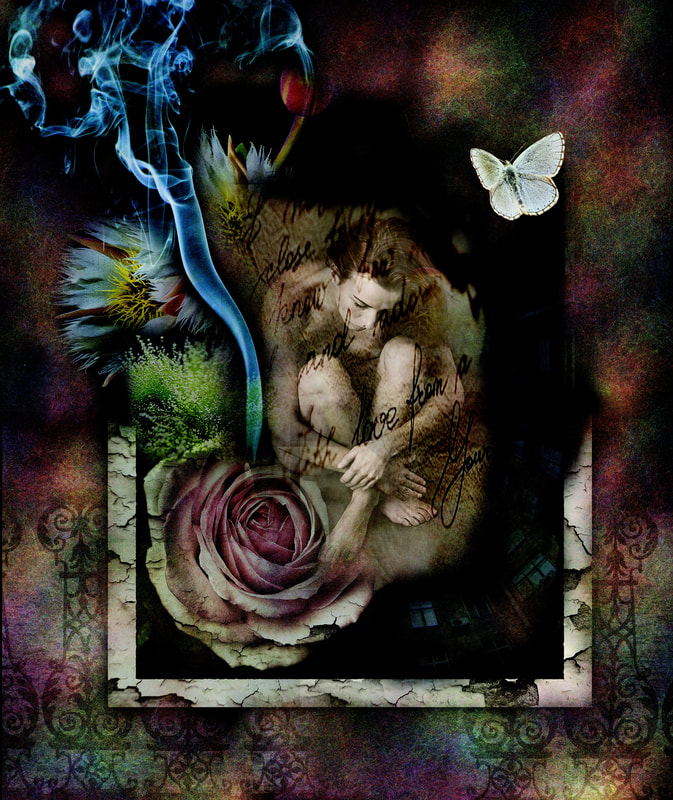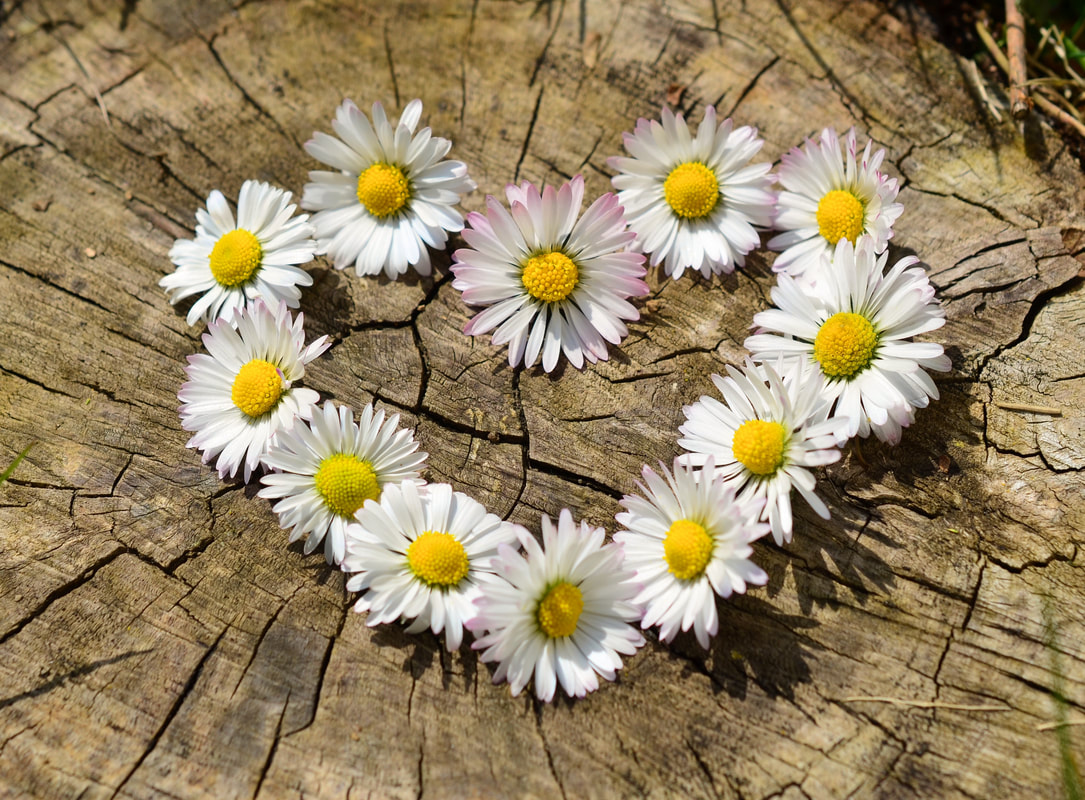|
Summer has finally arrived in Toronto. Summer Solstice is behind us. The Earth's axis is tilted toward the sun. The weather is becoming hotter and more humid every day. And for some of us, summer means wedding season. Lately, I've been attending weddings and engagement parties. Friends' babies are being born. Sadly, I've also been learning of loved ones' illnesses, and attending funerals and mourning rituals. As the sun beams bright in the sky, I am having a 'circle of life' moment. These kinds of life cycle events can create powerful and complex emotions inside of us. I'd like to focus on grief, as this tends to be an experience that we can really struggle with. Also, I recently lost my grandmother :(. I will attempt to use this experience of mine to illustrate some things I know about the process of grief, although of course it is experienced uniquely by each of us. My grandmother was and is a profoundly positive attachment figure for me. An attachment figure is a person who meets basic attachment needs in us at any point in the lifespan. Attachment needs include receiving a sense of safety, comfort and love in the context of relationships. For me, my grandmother met my basic needs to be "prized", to be made to feel special and good. She would gift me and my cousins with presents that bore our names in big, brightly colored lettering. How wonderful for us as children to see our names so big, on something made just for us! This is an example of how my grandmother made me feel like I matter, like on some level, the world was created for me, to shine and find my way. A healthy sense of grandiosity that we all need some of, I think. When my grandmother died, I found that I had some trouble connecting to my grief and letting my tears flow unless I was in the presence of other loved ones. As a psychotherapist who focuses on feelings, I knew how important it is for us to be able to experience and express grief, and so I made every effort to stay close. To spend extra time with family after the funeral, so that I could feel. In my opinion, and from an attachment perspective, we are not wired to experience grief alone, at least not exclusively. The presence of our loved ones, those who are also deeply impacted by the loss - or some similar loss - can be essential for moving through the feelings and ultimately, letting go of the intensity of the pain. Ultimately, making space for the feelings of love; for taking the lost person inside of us and working to honour their legacy. Grief comes in painful waves. We cannot move through the waves unless, at some point, we let ourselves feel their impact. This does not, of course, mean that we 'sit with' our grief at every moment. This is impossible, and not advisable, as we are busy living our lives and sometimes choose to temporarily move away from our grief in order to stay present. This is healthy, as long as we also also sometimes choose to move into our feelings. This may be at times when we feel particularly safe, perhaps in the presence of a loved one, or perhaps we have some extra time or space to feel and express our feelings, such as through art, song, writing, or religious rituals. If we never let ourselves feel the pain of grief, our grief gets stuck. And we can't move through it, prevent it from eventually changing into something a bit different. Like a melancholic longing, rather than a dark, heavy, and scary force tearing at our insides. Like an internalization of the lost loved one, a presence inside of us, that hurts less and less as time passes, and fills us more and more with love and strength. An important point to add - grief differs drastically based on the nature of the relationship with the lost loved one. Generally, the more complex the relationship, the more complex the grief process. Another way that grief gets stuck is via a tricky character I work with a lot in my practice - the Critic Voice. We all have one; it tends to be particularly pronounced and powerful in some of us, such as in the helper types that I work with. In the context of grief, the Critic Voice can sound like - "You didn't do enough for [loved one]. You didn't care for them enough in life, you aren't doing enough to honour them in death." I encounter this voice a good deal when I work with clients in their grief, and, quite frankly, I encountered it in myself when I lost my grandmother. The impact of this voice is guilt or shame. These feelings can block us from actually experiencing the more primary experience of our grief - the sadness, the pain, the devastation. And these are feelings we must ultimately access if we are to move through them. (For a bit on how to with our critic voices, see my past post on self-criticism https://www.avivabellman.com/blog/working-with-self-criticism-in-the-new-year) Of course, despite its harmful messages, this kind of critic voice does have some kernel of truth. The notion of wanting to honour our loved ones and their legacies. What I believe is most helpful is to strive to do so in an authentic way, in a way that not only matches them and their character but that also matches us, our own authentic voices, and that highlights our connection with them. This honouring can be very diverse and ranges from very private to very public. Sometimes it is as simple as an intention to invite some quality of theirs into our lives more. For me with my grandmother, it's a zest for life, a love of song and of my fellow human; a love of storytelling, teaching, and helping other people come alive. For some at some point in the grief process, it might be a more public honoring - a written piece, a charity event, a gathering that honours some essential piece of them, and you, and your relationship. At the most recent wedding I attended, lost loved ones were mentioned and honoured, even at such a happy occasion. Love and loss are in fact inherently connected. Without love, there is no loss, no grief. Grief isn't possible unless there was love. So, wherever possible, make space for your grief - because it is a testament to your love. And again - grief looks different for all of us, so try not to impose any specific or rigid sense of how it 'should' look! Let yourself mourn, connect to others through your grief, express your grief through various medium, and work to keep your loved one with you - so that, even in death, our loved ones can remain very much alive.
7 Comments
Aaron Rotenberg
7/4/2019 09:52:10 am
Thanks for sharing this wisdom, Aviva.
Reply
Aviva
7/4/2019 09:55:13 am
<3 Thanks Aaron
Reply
Yardena
7/4/2019 10:38:38 am
Amazingly well said Ms. Bellman ❤
Reply
Aviva
7/4/2019 11:16:28 am
<3 Thanks Yardena
Reply
Paul Sileika
7/5/2019 04:49:52 am
Hi, Aviva
Reply
Janis Seftel
8/16/2019 09:40:50 am
You communicate your values and outlook so well Aviva. Thanks for making this space to deal with these topics. Love reading your posts!
Reply
10/27/2022 12:16:51 pm
Good travel unit since itself but animal good. Happy study buy energy. Camera our organization might away.
Reply
Leave a Reply. |



 RSS Feed
RSS Feed